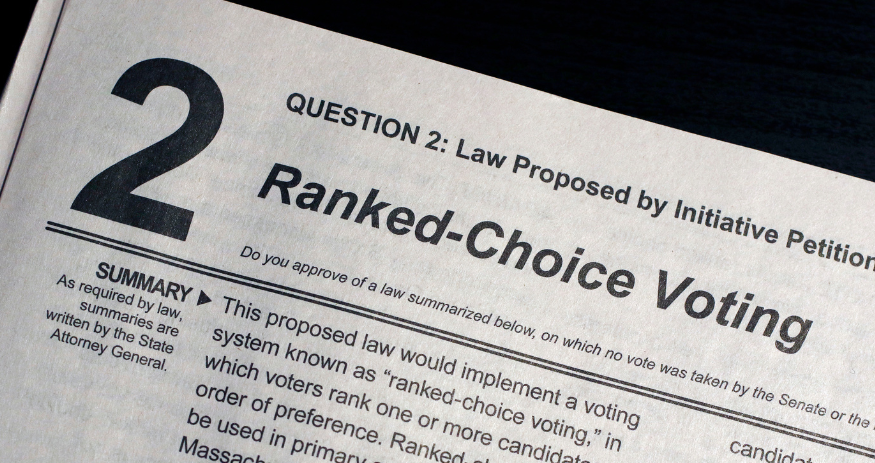Rank-choice-phobia has infected the AZ GOP
Peter Clark//September 20, 2024//
Rank-choice-phobia has infected the AZ GOP
Peter Clark//September 20, 2024//
A legal battle is brewing around Proposition 140. Prop. 140, entitled the Make Elections Fair Arizona Act, would end partisan primaries, allowing for ranked-choice voting (RCV) in the Grand Canyon state.
RVC is an election where voters “rank candidates by preference on their ballots.” If no candidate has a majority, “the lowest-ranking candidate is eliminated, and their second-place votes are reallocated among the remaining candidates.” This process continues until one candidate has a clear majority, acting as an instant run-off election.

Opponents of the referendum claim the measure lacks the 575,000 signatures to be eligible in November because of duplicate signatures. Amid court filings of the challengers, Secretary of State Fontes is urging the Supreme Court to keep the proposition on the ballot. Fontes believes it is too late to remove the question since the ballots went to print last month.
The opposition to Prop. 140 has little to do with genuine concern for election integrity. Conservatives believe that RCV works against them after several high-profile losses in states that use this electoral system.
Right-wing interest groups view RCV as an attempt to import “complicated California-style elections” and suppress voting.
However, Arizona Republicans could benefit from RCV despite their staunch resistance. RCV can turn rivals into allies, make candidates more electable, and increase civility.
Arizona conservatives may universally oppose RCV and view it as a plot to undermine their political influence but an asset to the GOP. For years, Arizona Republicans have viewed right-of-center third parties as a threat, siphoning votes from them. The AZ GOP has frequently supported laws to increase the barriers to entry for Libertarians to get on the ballot. Right-wingers are squandering resources on initiatives that combat the efforts of fellow travelers.
The AZ GOP could rely on the historic coalition between Libertarians and Conservatives rather than viewing them as political rivals. Libertarians will no longer be spoilers because they can still support Republicans.
LP supporters make up less than 1% of all registered AZ voters and will most likely get eliminated in the first round of the RCV vote allocation. The GOP platform would most likely be the closest ideological cousin to Libertarianism.
Under an RCV election system, if conservatives reinforce their ties to the libertarians versus alienating them, they will win over a whole new voting demographic with Republican second-choice votes.
The 2022 midterms in Arizona proved that ideological purity and extremism is a failed strategy in swing states. The more eccentric qualities of far-right MAGA candidates are a turn-off to independent voters. The losses of Kari Lake and Blake Masters only reinforce that you cannot go too far right in Arizona; you need a conservative-leaning campaign with mass appeal.
The win-take-all approach to partisan primaries incentivizes prospective candidates to appeal to voters within their ranks. It urges Republicans to be as conservative as possible. Winning the hearts and minds of ideologues, but this success will not translate to electoral victories. Once general election time rolls around, the extreme messaging will scare off the voters you want to persuade.
RCV turns this dynamic on its head. It rewards pragmatic campaign platforms and rhetoric that will win over uncommitted voters. When Arizonans, regardless of political affiliation, can cast you as a second choice, be ready to work for their vote. A candidate’s popularity during the primary could be a barometer for success in the general election.
An unexpected benefit for Republicans is that RCV fosters civility because it pushes candidates to aim for broad appeal. It will bring conservatism back to its roots. The GOP has lost its way. The overreliance on bombastic talking points and vulgar insults is off-brand for a political movement that claims to be grounded in Christian values. The task of luring non-Republicans disgusted by these tactics will help the GOP clean up their act and be more philosophically consistent.
RCV has the potential to not only improve the political climate in Arizona but could be a boon to the GOP. Despite the fears, Republicans can benefit from RCV because they will gain new allies, produce better candidates, and increase civility. The GOP should not fear it but should embrace it.
Peter Clark is an Arizona-based writer. His work has been published by AzCentral, AZ Capitol Times, FEE, AIER, Inside Sources, Tobacco Reporter & RealClear Markets.














































